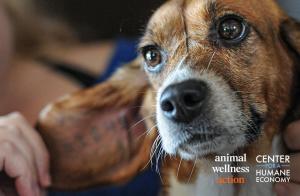FDA Commissioner and Congress Speaking Same Language to Reduce Animal Testing in Drug Development
HHS Secretary Kennedy, FDA Commissioner Makary signal move away from animal testing, while a group of lawmakers introduces the FDA Modernization Act 3.0
U.S. Representative Buddy Carter, R-Ga., chair of the Health Subcommittee of the House Energy & Commerce Committee is the lead author of the FDA Modernization Act 3.0. Co-leaders of the bill include Representatives Nanette Barragán, D-Calif., and Diana Harshbarger, R-Tenn. (both on the Health Subcommittee), Troy Carter, D-La. (Energy & Commerce Committee), Representative Rosa DeLauro, D-Conn. (ranking Democrat on the Appropriations Committee), and Vern Buchanan, R-Fla. (House lead author of the original FDA Modernization Act).
The FDA Modernization Act 3.0 is the companion bill to the bipartisan Senate bill S.355, led by Senators Cory Booker, D-N.J., and Eric Schmitt, R-Mo., and requires the FDA to publish a final rule to implement the FDA Modernization Act 2.0 (FDAMA 2.0) by updating regulations that allow for non-animal test methods that can better predict drug safety and efficacy, speeding the time to market for new treatments and cures. A nearly identical bill passed the Senate by unanimous consent in December 2024, but the House did not take up the measure before the end of the 118th Congress.
“At long last, we may be at a pivot point where FDA is no longer obstructing the move away from animal testing,” said Wayne Pacelle, president of Animal Wellness Action and the Center for a Humane Economy. “With today’s comments, Commissioner Makary is suggesting that the FDA will become a catalyst for the transition to 21st-century science grounded in human biology.”
“The FDA Modernization Act 3.0 will allow for development of safe, effective treatments and therapies without unnecessary animal suffering. We have a law allowing for animal-free testing methods on the books, and it’s time we put it to use by expanding testing options,” said Representative Buddy Carter, R-Ga.
“Animals deserve humane treatment. They should not have to serve as lab experiments and be subjected to cruel tests for the purpose of human drug development. I am proud to rejoin Rep. Carter in leading this bipartisan effort to limit practices of animal testing for drug research,” said Representative Nanette Barragán, D-Calif. “Carrying out stricter standards with the reforms included in the FDA Modernization Act 3.0 will not only encourage alternatives for more humane drug testing, but also support safer and more effective delivery of drugs to patients.”
“The FDA’s outdated animal testing rules are harming animals, hurting patients, and stalling medical innovation,” said Congresswoman Diana Harshbarger, R-Tenn. “The FDA Modernization Act 3.0 will cut burdensome red tape to allow drug manufacturers to use modern and more humane alternatives to improve safety for animals and patients alike. As a compound pharmacist for more than 30 years, I understand that ensuring East Tennesseans have affordable access to safe medicines is of the utmost priority, and this bill is a step toward delivering safe medicines in a more humane way.”
“The FDA Modernization Act of 2021 was a monumental win that will streamline drug development and spur innovation without having to sacrifice at the expense of animal welfare,” said Representative Vern Buchanan, R-Fla. “I look forward to building upon that success with Congressman Carter and ensuring the FDA follows through on delivering speedier cures for diseases without subjecting animals to inhumane and counterproductive experiments.”
The FDA’s failure to act for over two years is baffling, given the widespread support for FDAMA 2.0 both in the scientific community and among biotech companies and drug developers. More than 1,000 global publications, including news articles, commentaries, scientific reviews, and primary papers, have been published since enactment and noted the potential for a paradigmatic shift in drug development.
Recognizing the agency’s inaction, House appropriators in July 2024 inserted report language into the FY25 Ag/FDA appropriation calling for “continued implementation of the FDA Modernization Act 2.0, designed to modernize the drug development process and empower free market competition.” The appropriators also noted that “[s]ignificant delays may sow confusion among drug sponsors and stifle free-market innovation in new drug development.”
In addition to Animal Wellness Action and the Center for a Humane Economy, key endorsers of the legislation were the Laurie C. McGrath Foundation, the Michelson Center for Public Policy, SPCA International, Teva Pharmaceuticals, PETA, the Rare and Undiagnosed Network, and the International Cancer Advocacy Network. More than 200 animal welfare organizations, patient advocacy groups, and biotech and pharmaceutical companies backed the legislation.
Additional Perspectives from Drug Development Experts and Scientists
“FDA’s exclusive reliance on animal testing produced irrecuperable delays in the development of medicines, missed opportunities due to misguided regulatory principles, and exorbitant costs ultimately passed onto consumers. FDAMA 3.0 helps wean America from its dependency on artificial animal models — which proved to be misleading, distracting, and utterly unwise investments. It also asserts that human-relevant, technology-driven approaches must be the cornerstone of our drug development paradigm towards achieving results and eliminating inefficiencies and waste,” said Dr. Zaher Nahle, senior scientific advisor for the Center for a Humane Economy and Animal Wellness Action.
“Aligning the statute with regulations will eliminate confusion for drug sponsors, lead to more cures, cut drug-development time, lower drug prices, and confirm the FDA’s stated commitment to reducing and replacing animals in drug development,” said Tamara Drake, director of research and regulatory policy for the Center for a Humane Economy. “That must be complemented by a clear, accountable, and transparent regulatory process, including the full and speedy implementation of the existing law.”
“It is essential that FDA be proactive in using the most predictive scientific methods in its decision-making. Human-centric techniques such as organs-on-a-chip and organoids are developing rapidly and have the potential to improve, and even accelerate, bringing safe and effective products to the market. This legislation will focus FDA’s attention where it needs to be — improving regulations that will lead to better treatments, more cures,” said Paul A. Locke, JD, DrPH, professor, Johns Hopkins Bloomberg School of Public Health.
ABOUT
Animal Wellness Action is a Washington, D.C.-based 501(c)(4) whose mission is to help animals by promoting laws and regulations at federal, state and local levels that forbid cruelty to all animals. The group also works to enforce existing anti-cruelty and wildlife protection laws. Animal Wellness Action believes helping animals helps us all. Twitter: @AWAction_News
The Center for a Humane Economy is a Washington, D.C.-based 501(c)(3) whose mission is to help animals by helping forge a more humane economic order. The first organization of its kind in the animal protection movement, the Center encourages businesses to honor their social responsibilities in a culture where consumers, investors, and other key stakeholders abhor cruelty and the degradation of the environment and embrace innovation as a means of eliminating both. The Center believes helping animals helps us all. X: @TheHumaneCenter
Wayne Pacelle
Animal Wellness Action
+1 202-420-0446
email us here
Legal Disclaimer:
EIN Presswire provides this news content "as is" without warranty of any kind. We do not accept any responsibility or liability for the accuracy, content, images, videos, licenses, completeness, legality, or reliability of the information contained in this article. If you have any complaints or copyright issues related to this article, kindly contact the author above.
Artificial Intelligence (AI) In Endoscopy Market Size, Share & Trends Analysis Report By Product
Bio-Detectors And Accessories Market Expanding With $42.88 Billion at 15.8% CAGR by 2029
Dental Resin Market to Grow at 6.4% CAGR from 2025-2029
Więcej ważnych informacji
 Jedynka Newserii
Jedynka Newserii

 Jedynka Newserii
Jedynka Newserii

Prawo

Kolejne polskie miasta chcą być przyjazne dzieciom. Planują stworzyć najmłodszym dobre warunki do rozwoju
Cztery miasta w Polsce posiadają tytuł Miasta Przyjaznego Dzieciom nadany przez UNICEF Polska. Dziewięć kolejnych miast czeka na certyfikację, a w ostatnich miesiącach do programu zgłosiło się kilka następnych. Na całym świecie inicjatywa została przyjęta już w ponad 4 tys. samorządów, a w Hiszpanii objęła połowę dziecięcej populacji miast. Program UNICEF-u ma na celu zachęcenie włodarzy do traktowania najmłodszych obywateli w sposób podmiotowy, respektowania ich praw i zaproszenia ich do współdecydowania o przyszłości.
Przemysł
W ciągu roku w Polsce ubyło 500 przedsiębiorstw odzieżowo-tekstylnych. Problemem są spadki zamówień z Europy Zachodniej i wzrost kosztów

Wartość rynku odzieżowego w Polsce wynosi 66,9 mld zł, z czego 10 mld zł to wartość krajowej produkcji – wynika z danych PIOT. Od czasu pandemii branża mierzy się z szeregiem wyzwań, wśród których najpoważniejsze to wzrost kosztów pracy i produkcji, przerwane łańcuchy dostaw i spadek zamówień – zarówno w kraju, jak i za granicą, a także wzrost nieuczciwej konkurencji na rynku, czyli głównie importu z Chin. Skala wyzwań sprawia, że w ubiegłym roku z rynku zniknęło 500 firm. Producenci odzieży apelują do rządu o wsparcie.
Handel
D. Obajtek: Orlen powinien być o 30–40 proc. większą spółką. Byłoby to z korzyścią dla konsumentów

Orlen jest największym polskim przedsiębiorstwem. Jego przychody ze sprzedaży w 2024 roku wyniosły blisko 295 mln zł, a rok wcześniej – ponad 372 mln – wynika z raportu Rzeczpospolitej „Lista 500”. W ubiegłorocznym rankingu Fortune 500 uwzględniającym największe korporacje znalazł się na 216. miejscu na świecie i 44. w Europie. Według Daniela Obajtka, europosła PiS-u i byłego prezesa Orlenu, spółka powinna jeszcze urosnąć, tym samym gwarantując konsumentom szereg korzyści, a także przyspieszać inwestycje m.in. w obszarze petrochemii i energetyki zero- oraz niskoemisyjnej.
Partner serwisu
Szkolenia

Akademia Newserii
Akademia Newserii to projekt, w ramach którego najlepsi polscy dziennikarze biznesowi, giełdowi oraz lifestylowi, a także szkoleniowcy z wieloletnim doświadczeniem dzielą się swoją wiedzą nt. pracy z mediami.









.gif)

 |
| |
| |
|